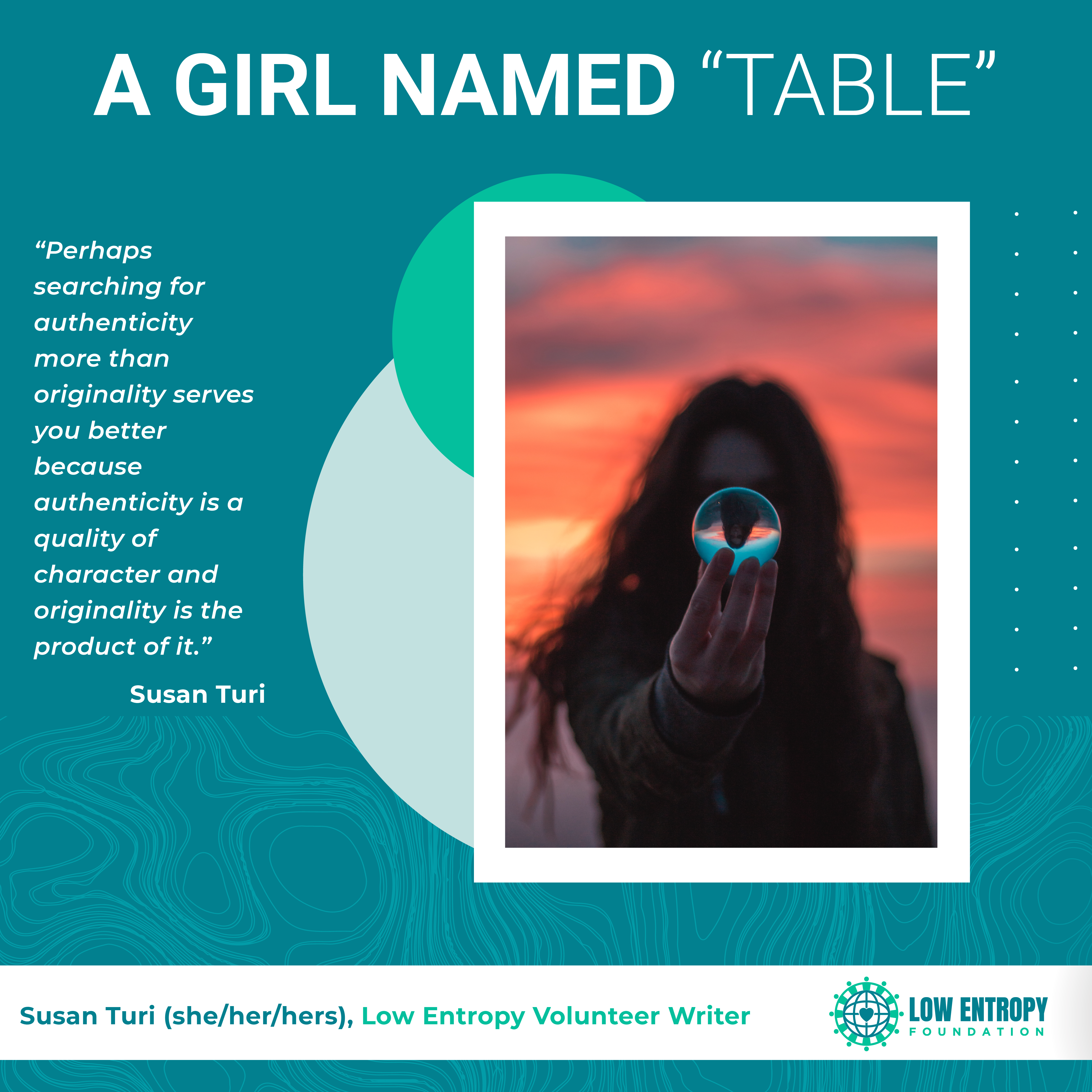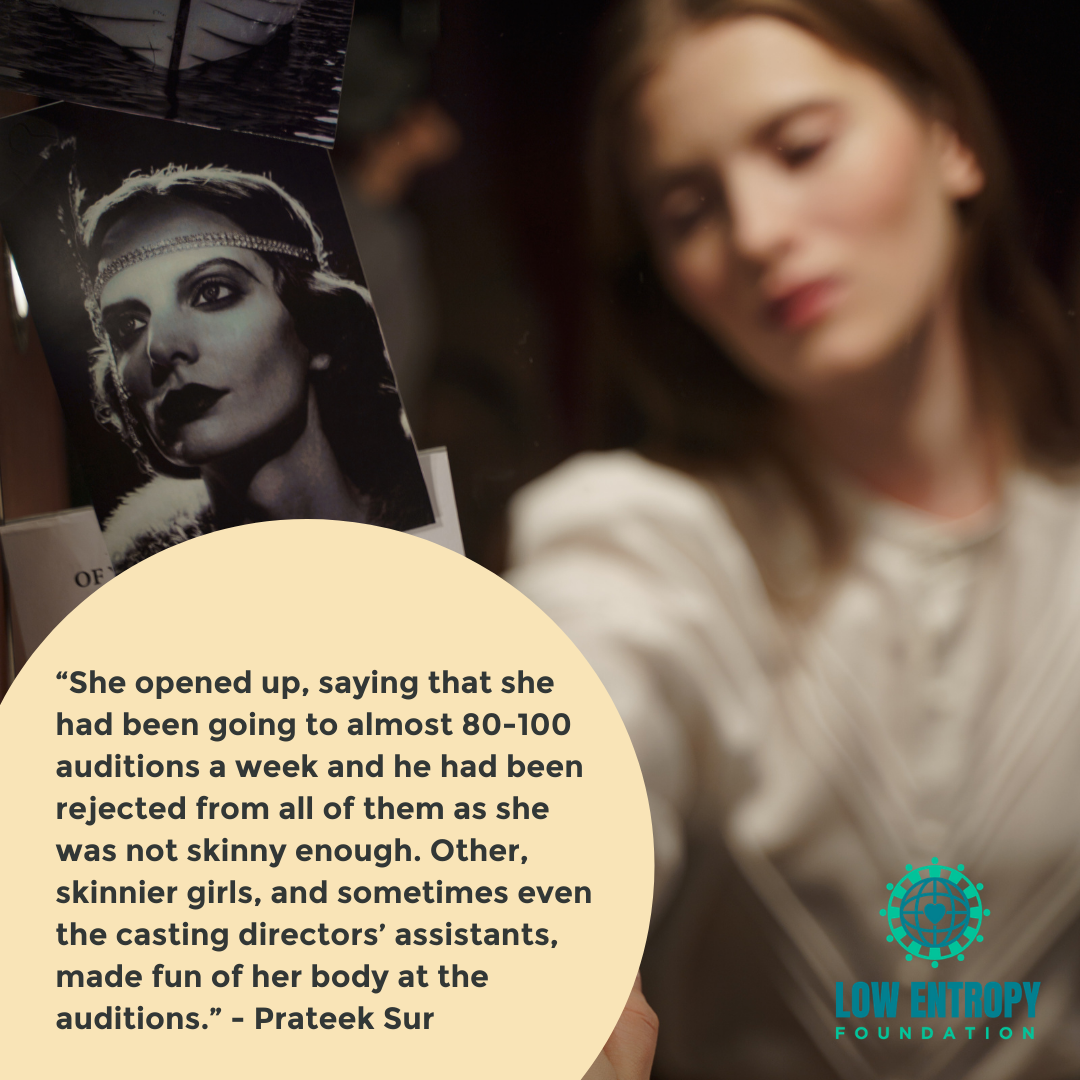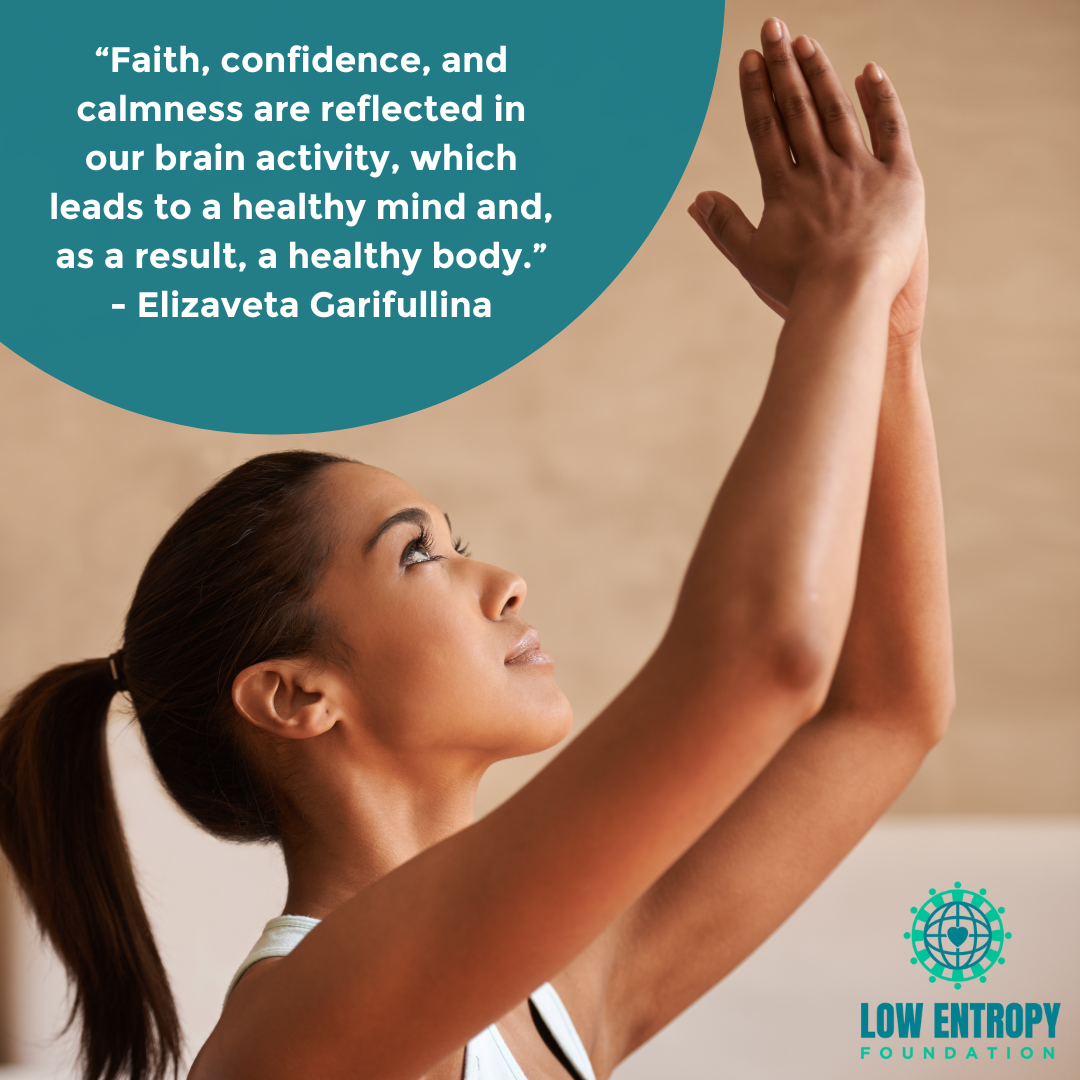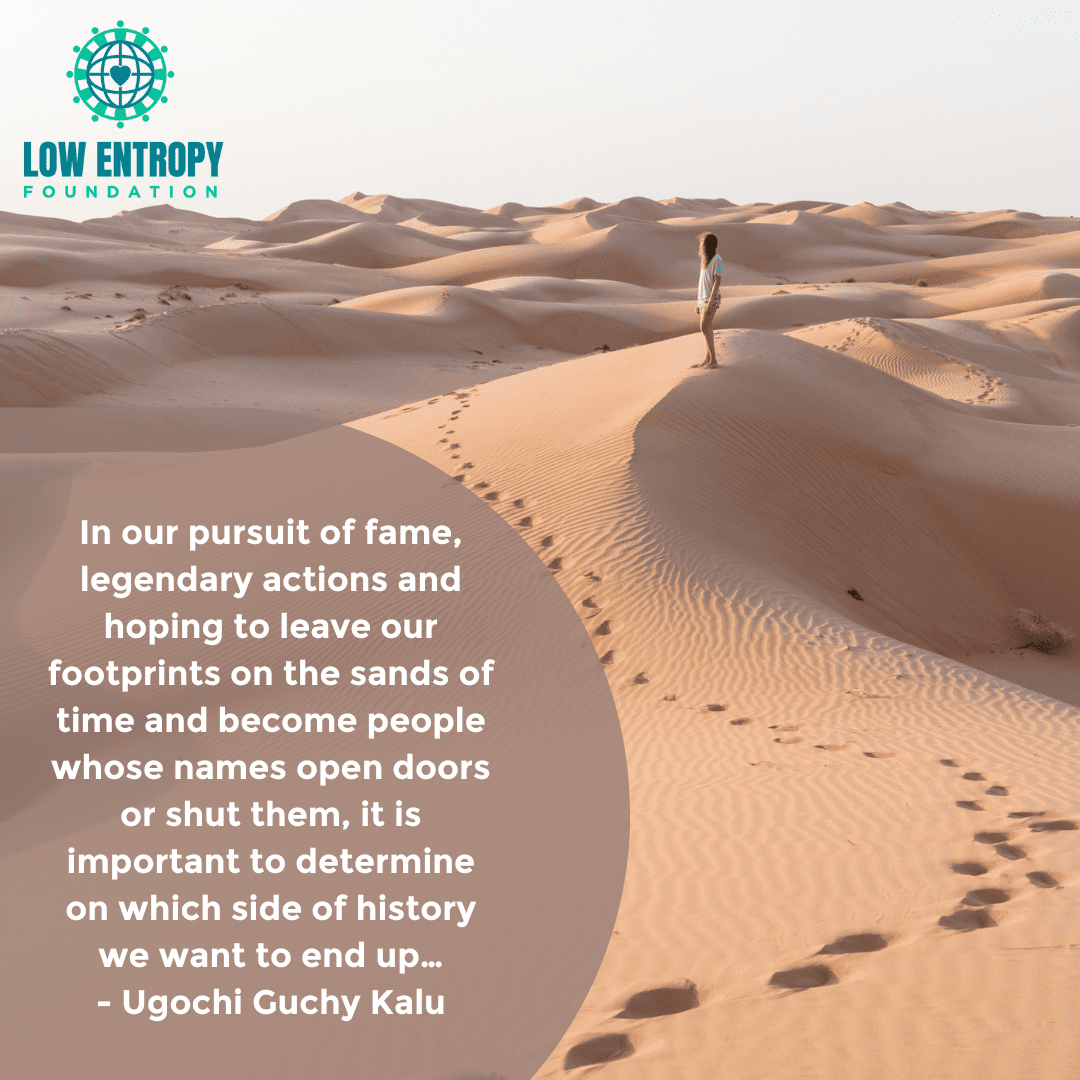A Girl Named “Table”
April 21, 2023

Susan Turi (she/her/hers), Low Entropy Volunteer Writer
“Mother named me ‘Table,’ believing it to be an original name for a firstborn girl. But quite frankly, I would’ve preferred the names ‘Window,’ ‘Sky’ or even ‘Door’ for their aspirational qualities. Imagine waking from a tedious dream of ordinary nonsense, to discover that you’ve been transformed into a beautiful oak door at the center of an ornate gothic ceiling — a magnificent wrought-iron chandelier descending from your center panel — a chandelier with twenty brilliant yellow daffodil flames — all of them equal in luster. But then the reality of being a door in a ceiling would set in. Unable to open and close properly because of the weight and racket of a cumbersome chandelier getting in the way all the time. Unable to hold a thought even for a second or two, with ideas raining out of you like space rubble tumbling, steaming onto a purple and yellow checkered plush rug below.
The sun had dimmed, the moon had dripped its liquid silver down the backs of chairs, and the crows had curled their spider fists against their breasts the first moment my name was uttered by a nurse dressed in pastel pink- ‘Table, what an original name for a girl!’
My name I reluctantly came to accept like the stoutness of my limbs and the predictability of my grain.”
When someone asks me what originality is, I think of free-writes. Free-writes are writing exercises that both aspiring and accomplished writers do in their alone time, in order to unleash their inner uncensored thoughts onto paper or into digital notes. Unlike journaling, they are not meant to be rants or confessional truths about oneself but are rather recorded disjointed thoughts that pop up in the mind. Anyone can benefit from writing freely, and like dreams, you can be surprised at your own unfiltered truths.
The way it works is like this: you set aside 10 minutes a day to write anything down that comes to mind. Literally anything. You let your mind wander and see where it goes. “A Girl Named Table” is an example of a free-write and shows how unlocking the deeper mind can offer up a treasure trove of stories that would otherwise never be exposed without the collaboration of the controlling conscious mind: “this has to make sense; people have to relate to or see familiar patterns in things,” it reminds the inner wild child. The conscious mind decides which facade to show and what impulsive outburst to squash and as such, keeps pure originality in the recesses of the mind, although once exposed like this free write, it risks being no longer truly original, but is that bad?
A tale within a tale, the writer uses the personality of Table to challenge originality when the very act of them writing freely is stimulating originality. On closer analysis of “A Girl Named Table,” the narrator yearns for a regular name because having a name like “Table” may be unique- but it’s equally a curse as who wants to be remembered as a table? Regardless of its originality as a name — the sound of “table,” also falls flat. The speaker then considers the merits of the name “Door” for its symbolism of a portal to other worlds, and like “Table,” she comes to realize that novelties have practical limits. But in the end, she’s accepting of her socially challenging name, managing to find some redeeming qualities about it, or maybe because her ego’s need to be noticed even negatively, is greater than her need to be accepted.
This free-write makes me question whether the active search for originality is overrated and ultimately useless because new ideas seem to bubble up from one’s own well of thoughts. Mark Twain wrote about originality and plagiarism saying: “[a]ll ideas are second-hand, consciously and unconsciously [. . .]” describing people’s filtering of, or contributions to those ideas as “discoloration.” But if every idea is second-hand or recycled, where did the initial idea come from?
An original idea is as hard to trace back in time as the chicken and egg story, and everyone can agree that at some point they have benefited from mentors or by mimicking others. Perhaps searching for authenticity more than originality serves you better because authenticity is a quality of character and originality is the product of it. The honest writer could say of their unfiltered free-write that
there may exist purple and yellow checkered rugs somewhere in the world, and a dozen people called “Table” that I’m unaware of, but what does it matter? As long as I keep an open mind, I’m being authentic to myself and creating a unique thought collage. And if there is a collective unconscious of similar ideas around the world – let me sometimes celebrate our shared interests rather than differences.
To modify an unoriginal analogy: I chased a fleeting rainbow to find its pot of gold and found myself instead, searching for a rainbow.
∾
Sources:
Unicheck: “Mark Twain On Plagiarism and Originality”
https://unicheck.com/blog/mark-twain#:~:text=The%20answer%20is%20yes%20and,based%20on%2C%20a re%20not%20original.
—
Susan Turi is a writer, illustrator and painter living in Montréal, Canada with a degree in fine arts. She began her career as a production artist for design studios and ad agencies, before deciding to devote herself purely to self-expression through writing and painting. She is currently at Concordia University majoring in creative writing and English literature.
GET INVOLVED
At Low Entropy, we believe changing the world starts with changing ourselves.
Founded in 2015, Low Entropy Facilitates conversations that encourage diversity and promote inclusivity.
We understand that life can be confusing at times. It can seem challenging and sometimes you may feel like no one really “gets you.” We offer an opportunity to connect with others who have the capacity to understand you.









